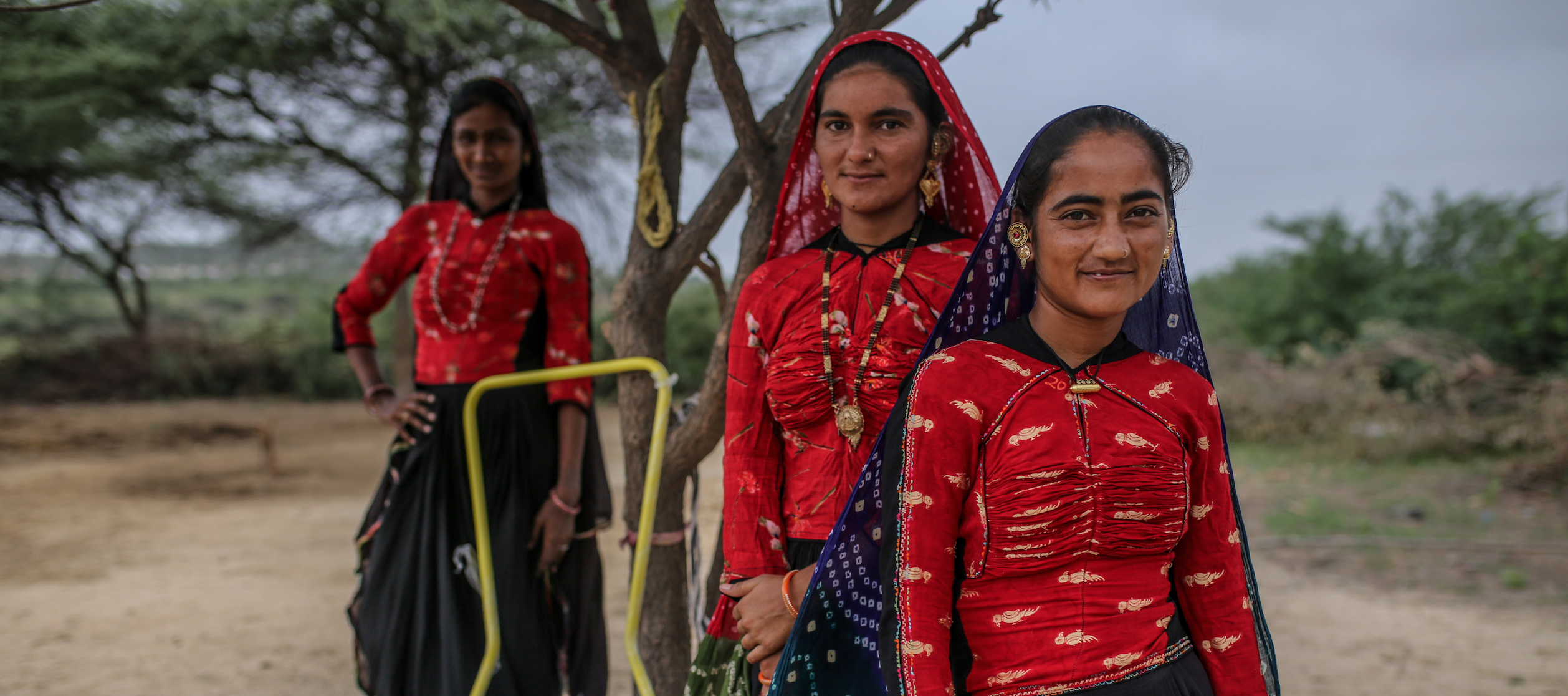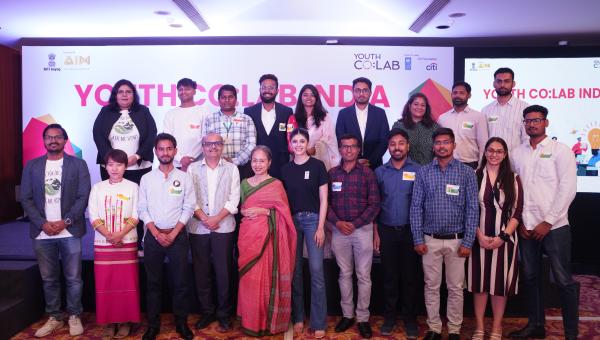Boosting Female Labour Force Participation
through Strengthening Urban Care Ecosystem
Project Background
UNDP India, in partnership with DAY-NULM, MoHUA, and supported by BMGF, is implementing the project ‘Boosting Female Labor Force Participation through Strengthened Urban Care Ecosystem.’ It focuses on providing childcare services for lower income urban households to increase women's workforce participation by developing scalable models with public and private sector support and building evidence. This is planned to be achieved through interventions at micro, meso, and macro levels, along with continuous engagement with ecosystem stakeholders.
The project recognises the urgent need to tackle disproportionate childcare responsibilities, which keep many women out of the workforce—with 44.5% citing "childcare/personal commitments in homemaking" as their main reason. Further, with fewer than 10% of Anganwadi Centers located in urban areas, a significant urban-rural gap exists, especially as urbanization rises and many women in the informal sector lack social security.
Additionally, unpaid care and domestic work in India represent an economic value of 15%-17% of GDP. A 2% GDP investment in the care sector could create over 11 million jobs, nearly 70% of which will go to women. Accessible, affordable urban childcare aligns with India’s goal of women-led development.
Planned Outcomes
- Outcome 1: Research, feasibility studies, and data analysis will be conducted to evaluate and identify effective urban childcare service delivery models in India. Innovative financing strategies will also be explored to develop a scalable model and a detailed implementation roadmap.
- Outcome 2: Tailored and standardized childcare training and certification programs, including specialized courses and an innovation challenge focused on, to enhance the skills of care workers, trainers, "carepreneurs," and members of self-help groups (SHGs). These efforts will be supported by the design and implementation of quality childcare service delivery pilot projects in 4-5 cities across India.
- Outcome 3: A strong focus will be placed on formative research, measurement, and learning, with continuous monitoring and evaluation conducted to generate evidence, capture insights, and support knowledge exchange and policymaking. An Urban Childcare Coalition will be established to promote collective action and increase investments in care solutions. Targeted communication efforts, awareness campaigns, and behavioral nudges will be implemented to encourage shared caregiving responsibilities across all genders.

 Locations
Locations

















